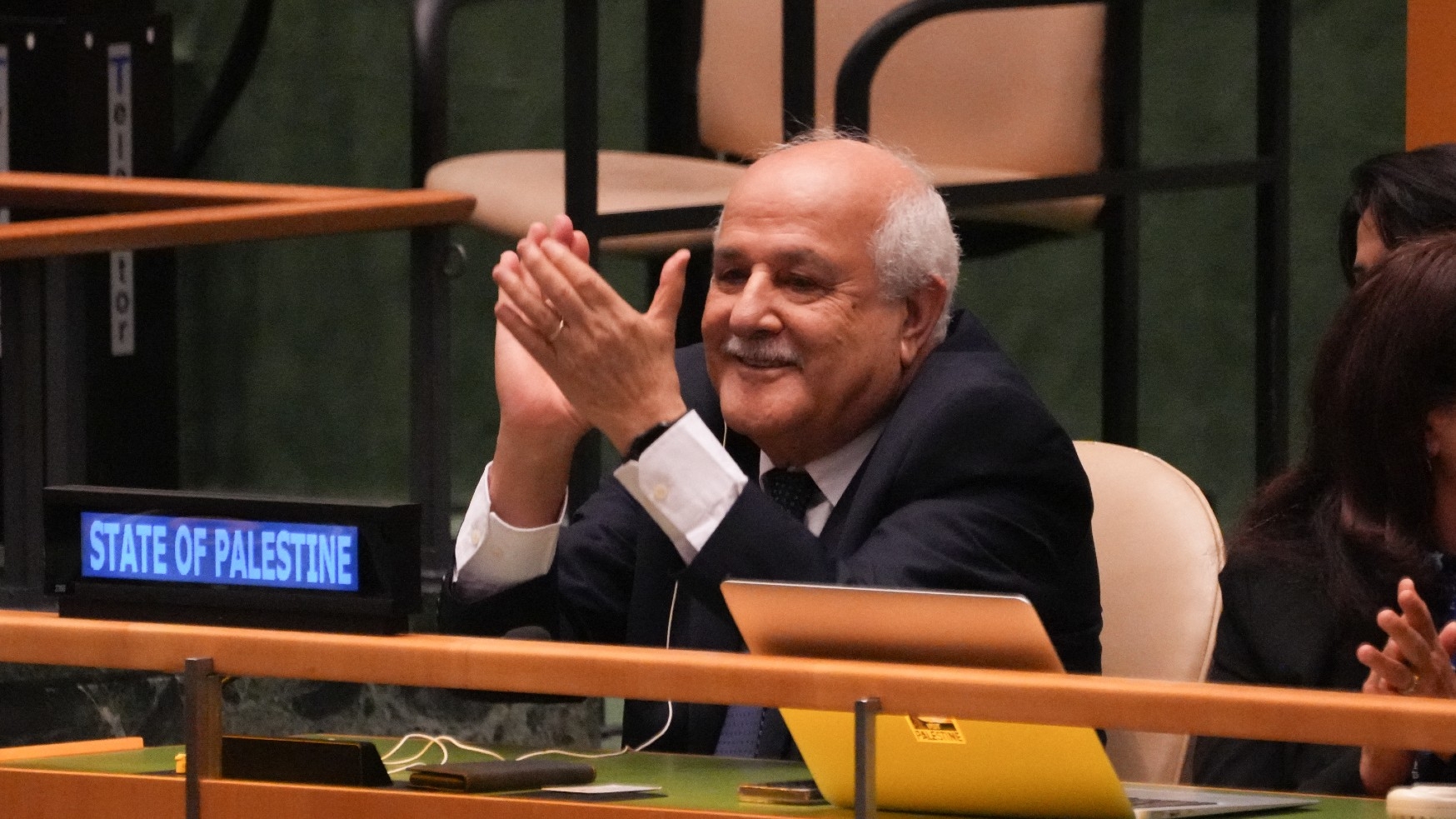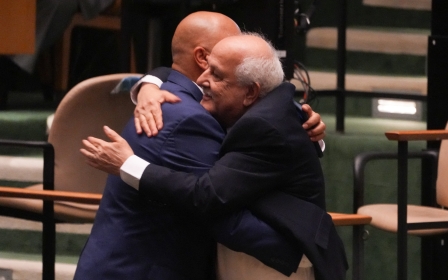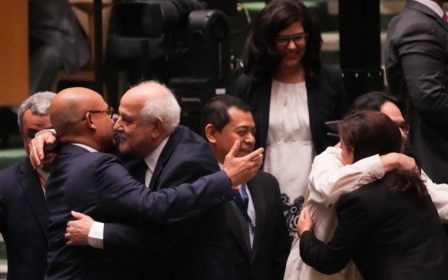‘Beginning of the end’: Celebrations mark UN vote on resolution to end Israeli occupation

The United Nations General Assembly voted decisively on Wednesday in favour of a nonbinding resolution put forward by the Palestinian Authority demanding that Israel end its “unlawful presence” in Gaza and the West Bank within a year.
The resolution, which was based on the July advisory opinion of the International Court of Justice (ICJ), also demands the withdrawal of all Israeli forces and the removal of Israeli settlers from the occupied Palestinian territories.
Some 124 countries voted in favour of the resolution at UN headquarters in New York City, while 14 countries voted against it, including Israel, Argentina, Hungary and the United States.
New MEE newsletter: Jerusalem Dispatch
Sign up to get the latest insights and analysis on Israel-Palestine, alongside Turkey Unpacked and other MEE newsletters
The 43 countries that abstained include US allies Australia, Canada, Germany, the UK and Ukraine.
Pro-Palestinian social media accounts like the Palestinian-led Boycott, Sanctions and Divestment (BDS) movement immediately celebrated the passing of the resolution, viewing it as an affirmation that "the historic ruling by the ICJ triggers the legal obligation of all states to end complicity in Israel's illegal occupation and apartheid regime".
BREAKING: With an overwhelming majority, and for the first time in 42 years, the UNGA today voted for imposing sanctions on Israel!
— BDS movement (@BDSmovement) September 18, 2024
The world’s global majority affirmed that the historic ruling by the ICJ triggers the legal obligation of all states to end complicity in Israel’s… pic.twitter.com/OYLwHOzzQl
Many social media users acknowledged that the resolution is nonbinding but still deem the results as a testament to Israel’s “increasing isolation” in the international community.
The UN General Assembly has passed a resolution calling for sanctions on Israel and a weapons embargo. 124 countries voted for it. 43 abstained and a mere 13 voted against. It is not binding, but a sign of increased isolation nonetheless.
— Shaiel Ben-Ephraim (@academic_la) September 18, 2024
Others are more hopeful about the outcome and see this as the “beginning of the end” of Israel’s occupation.
This is the beginning of the end of #Israel's unlawful occupation of #Palestine, a crime of aggression. We, the peoples of the United Nations, determined to save succeeding generations of Palestinians and Israelis from the scourge of war, reaffirming faith in fundamental human… pic.twitter.com/JZMX6ST2uW
— Itay Epshtain (@EpshtainItay) September 18, 2024
In contrast, many social media users have expressed frustration with the lack of impact that institutions like the ICJ or the UN have had in the course of Israel’s war on Gaza.
Palestinian human rights lawyer Noura Erakat acknowledged this frustration and the potential damage that it has on the entire institution of international law.
“On the same day, UN experts warn that the entire international order is at risk of crumbling for the systemic disregard for international law and regulation regarding the question of Palestine.”
This is not rocket science. Empirical evidence, global agreement, and judicial insight all demand a confrontation with Zionism that begins with ceasefire and withdrawal, and continues until Palestinian liberation for the sake of the world. #End #Gaza #Genocide #Nakba
— Noura Erakat (@4noura) September 18, 2024
Middle East Eye delivers independent and unrivalled coverage and analysis of the Middle East, North Africa and beyond. To learn more about republishing this content and the associated fees, please fill out this form. More about MEE can be found here.




